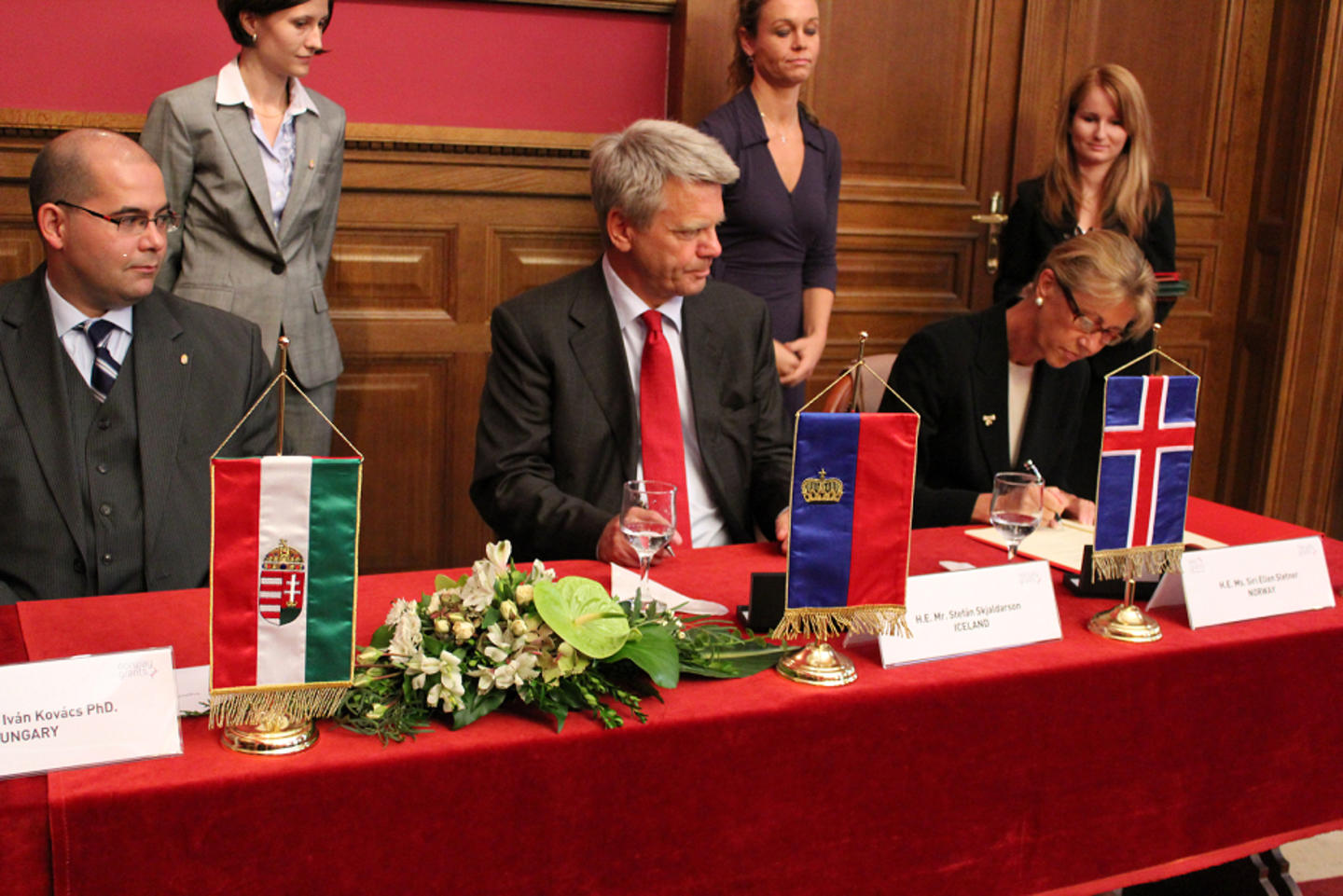Hungary has been allocated €153.3 million, up from €135.1 million in the previous five-year period.
Support for environment
Under the Agreements, programmes will be set up to promote energy efficiency and renewable energy, and to tackle climate change. In the renewable energy programme, the Icelandic National Energy Authority (OS) will contribute using its considerbale experience in the field of geothermal energy. The Norwegian Directorate for Civil Protection and Emergency Planning (DSB) will participate in the climate change programme.
Backing green innovation
The largest single programme will contribute to a ‘greener’ economy through support for green innovation and entrepreneurship. Innovation Norway will be a partner both in this, as well as in a programme to strengthen decent work and improve dialogue between social partners and public authorities.
Health and civil society in focus
Other significant areas include support for public health and for children and youth at risk, including vulnerable groups such as the Roma. The Council of Europe will be involved in this latter programme. Funding for civil society has been substantially increased and there will also be a new and bigger scholarship programme. Support to cultural heritage will continue with involvement from the Norwegian Directorate for Cultural Heritage.
Strengthening ties
Building on the strong cooperation already established in the previous funding period, two programmes will be set up to promote bilateral cooperation between Hungary and Norway - one within academic research and the other to support for capacity-building in the public sector. Eligible projects will be within the areas of environment, health, social sciences and humanities, with the Norwegian Research Council on board as a programme partner.
